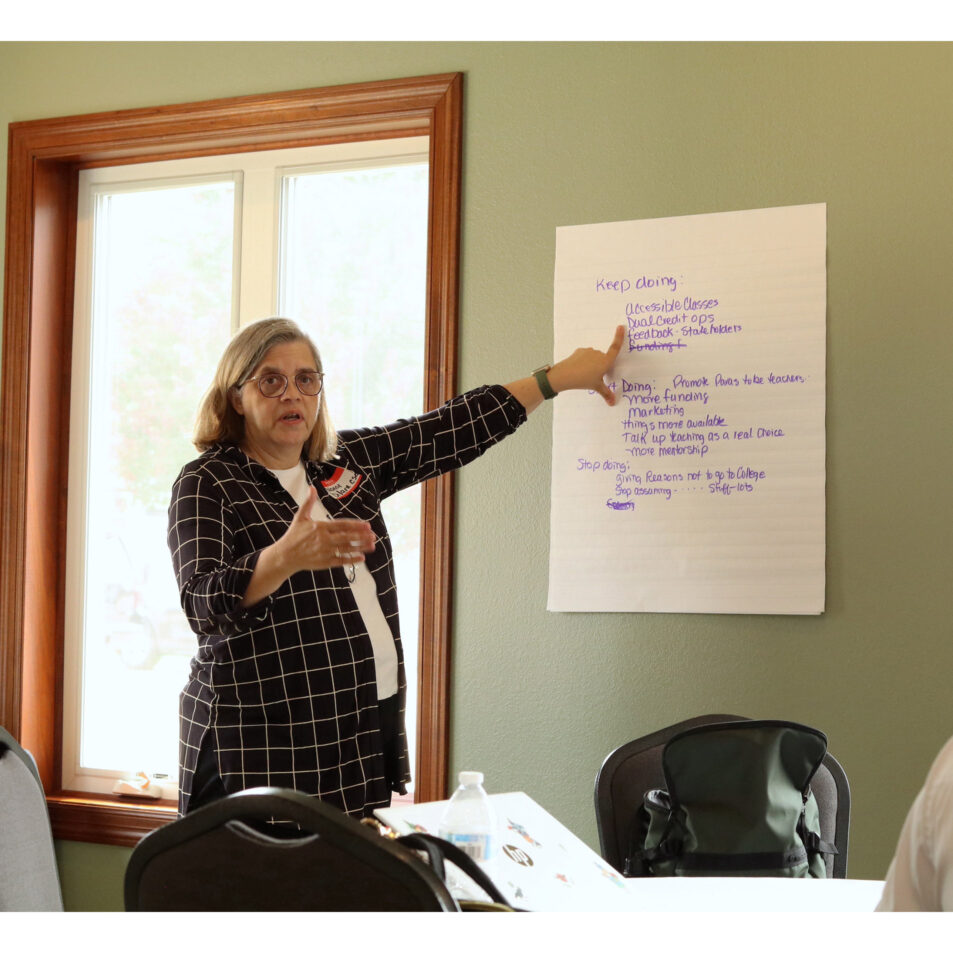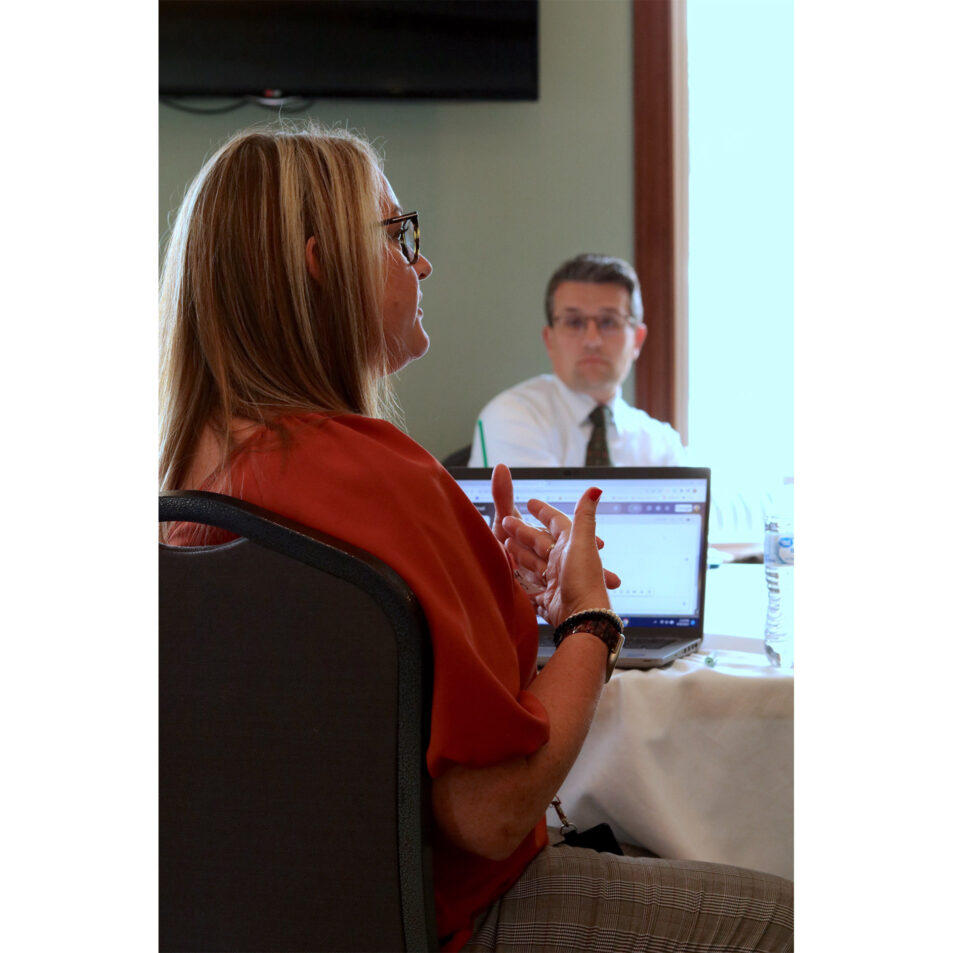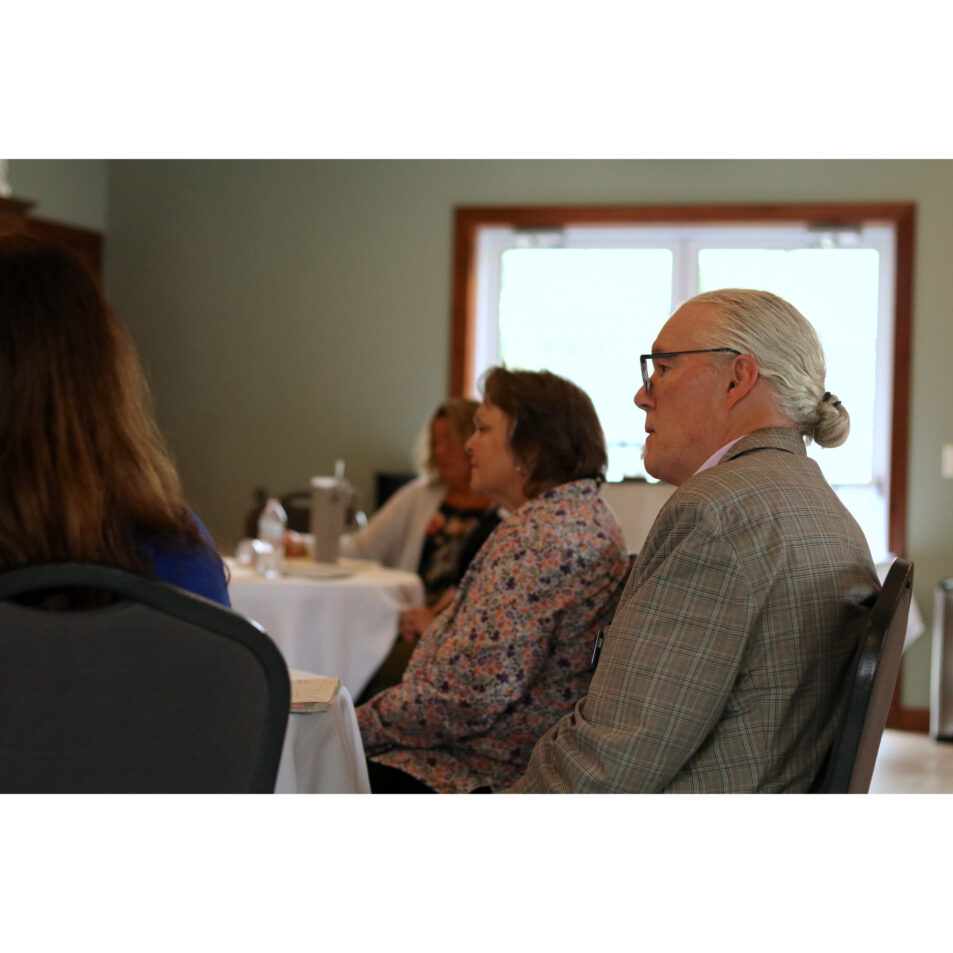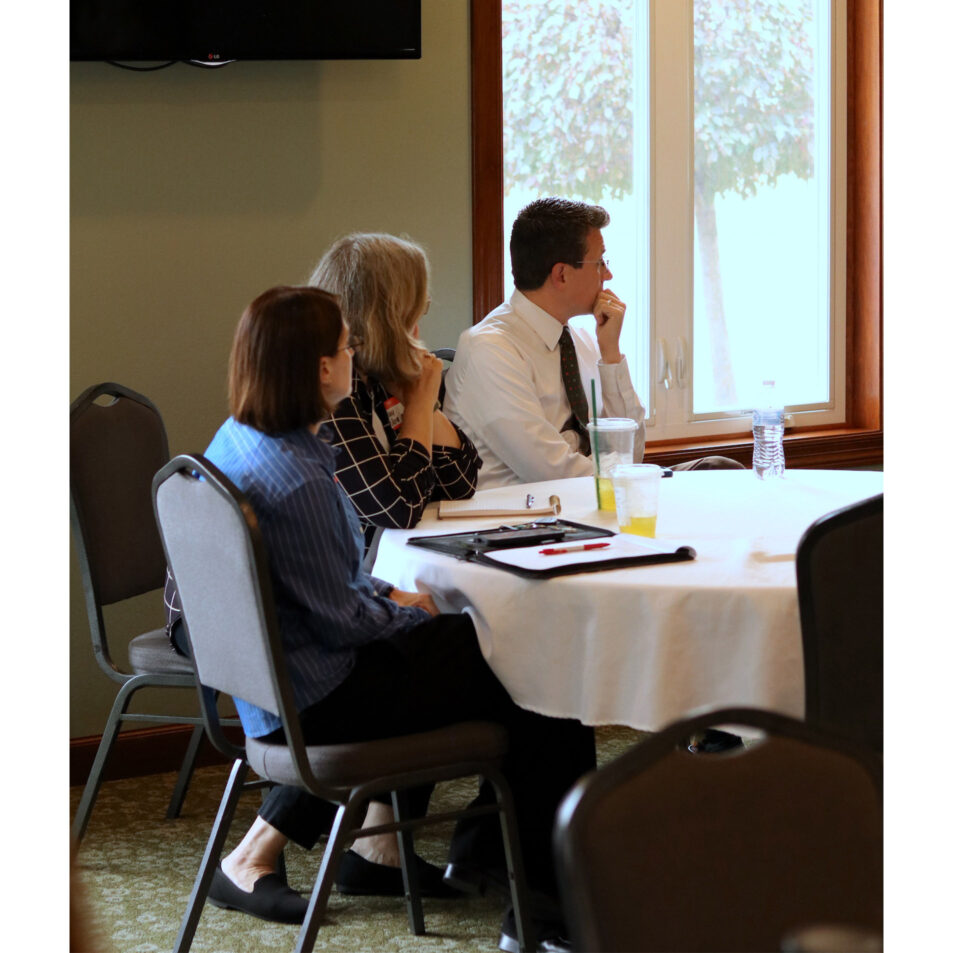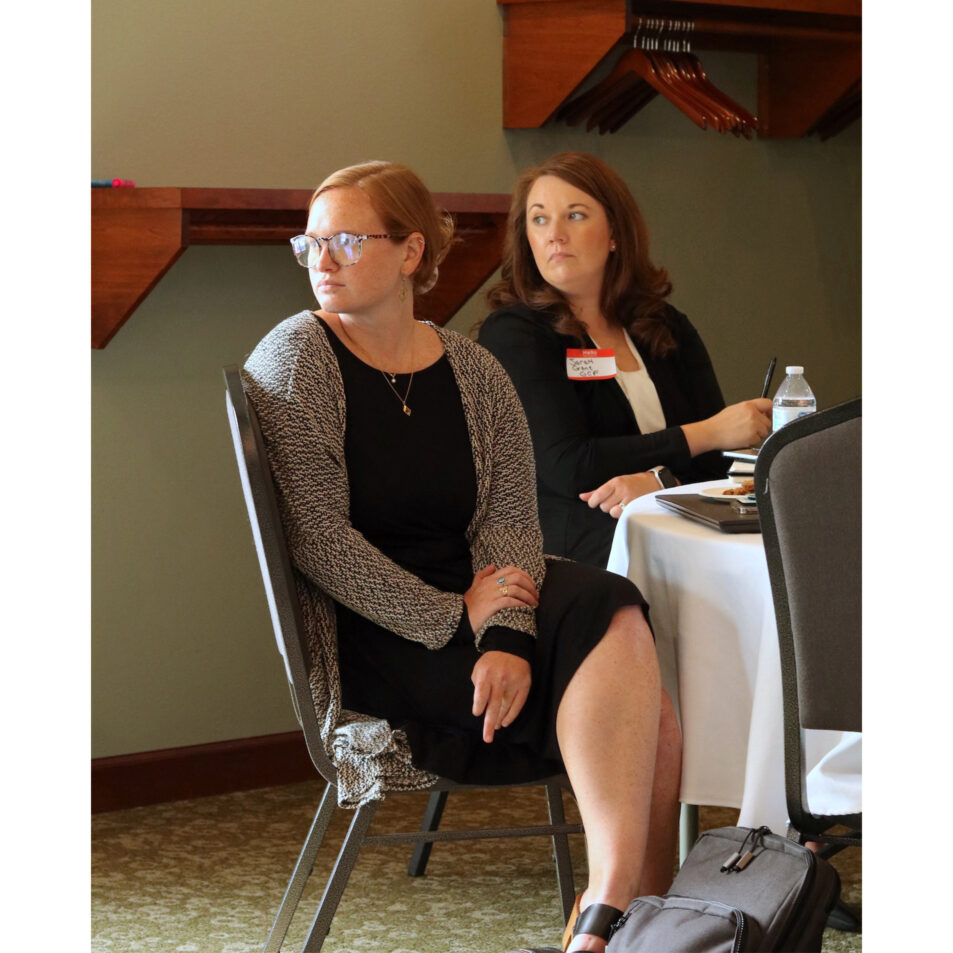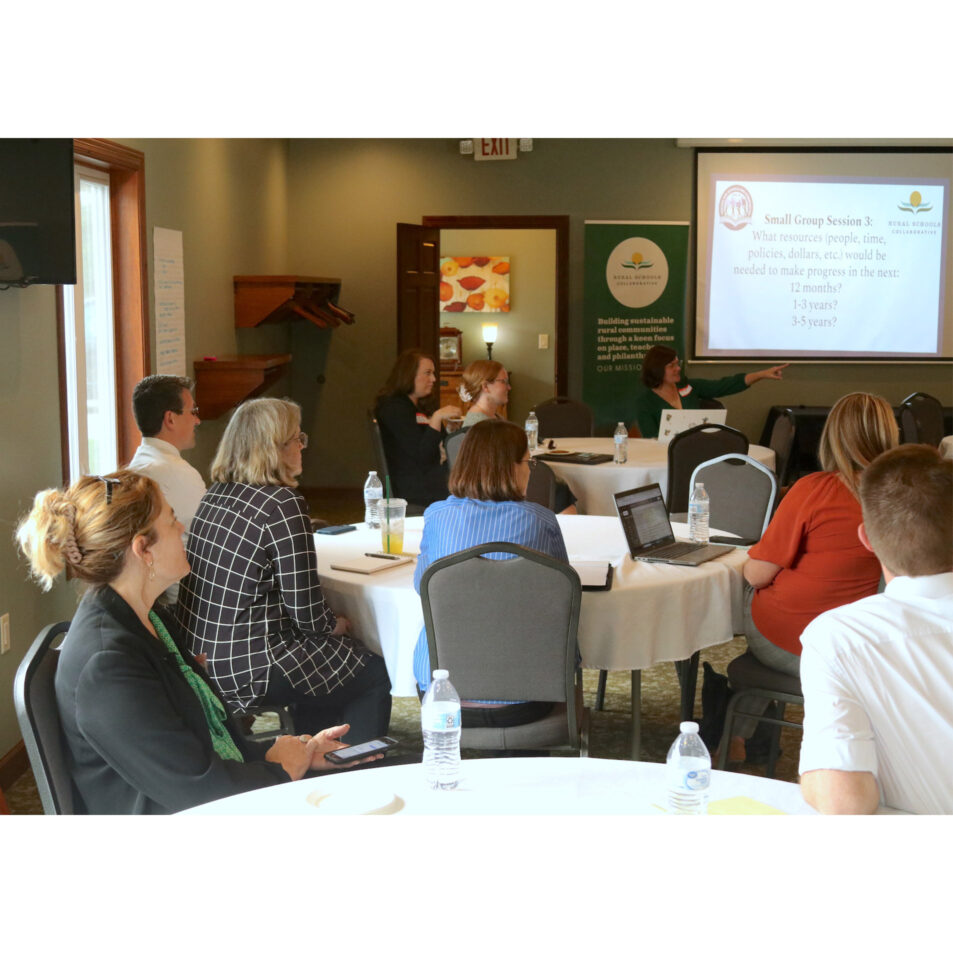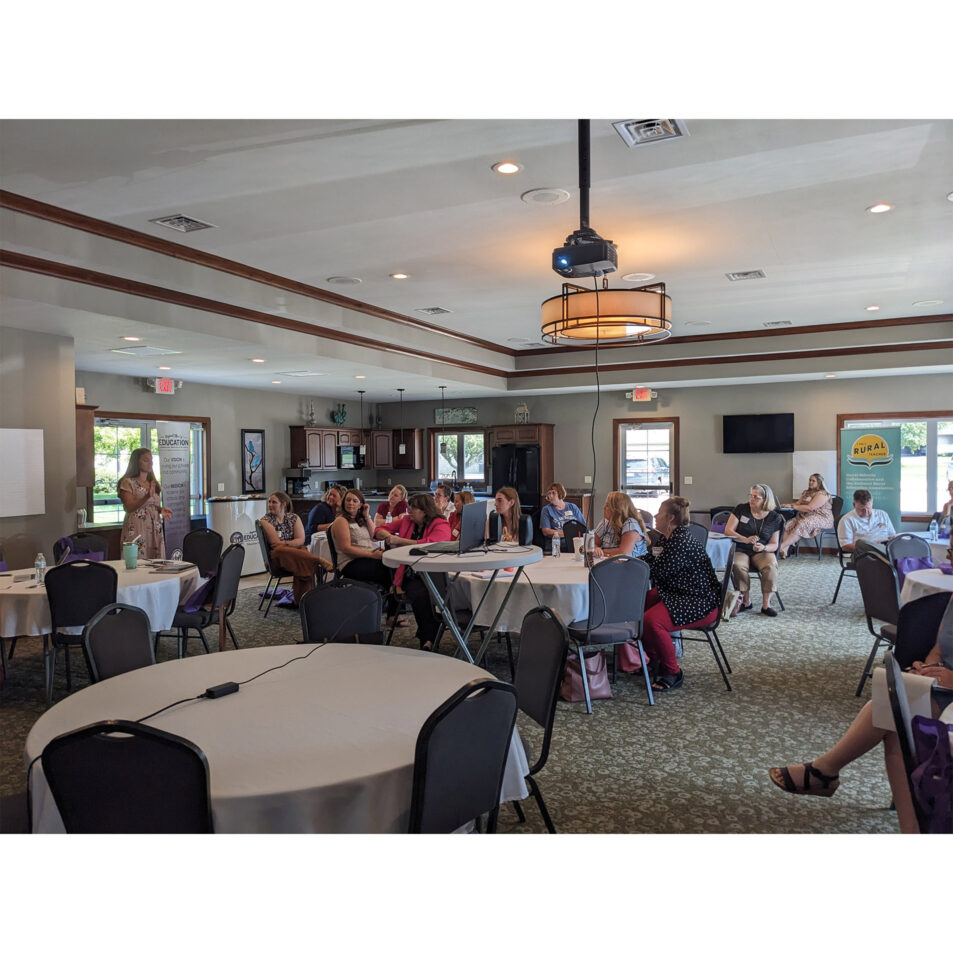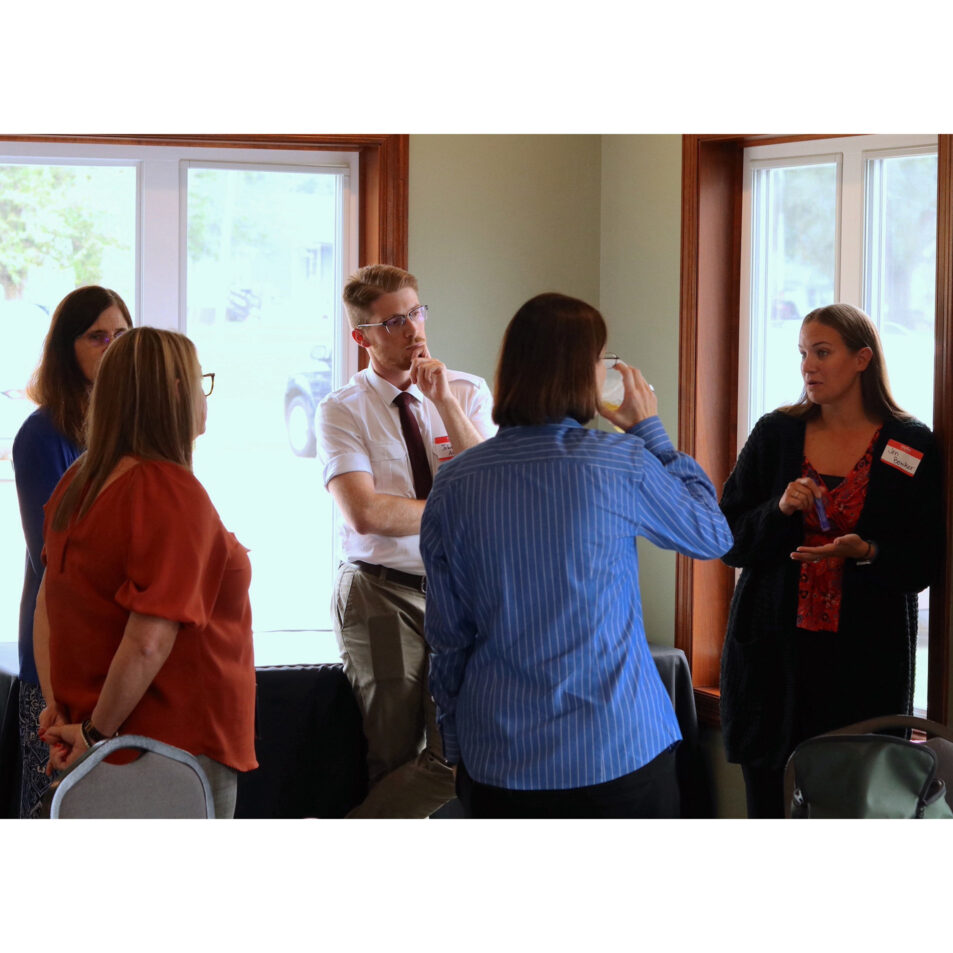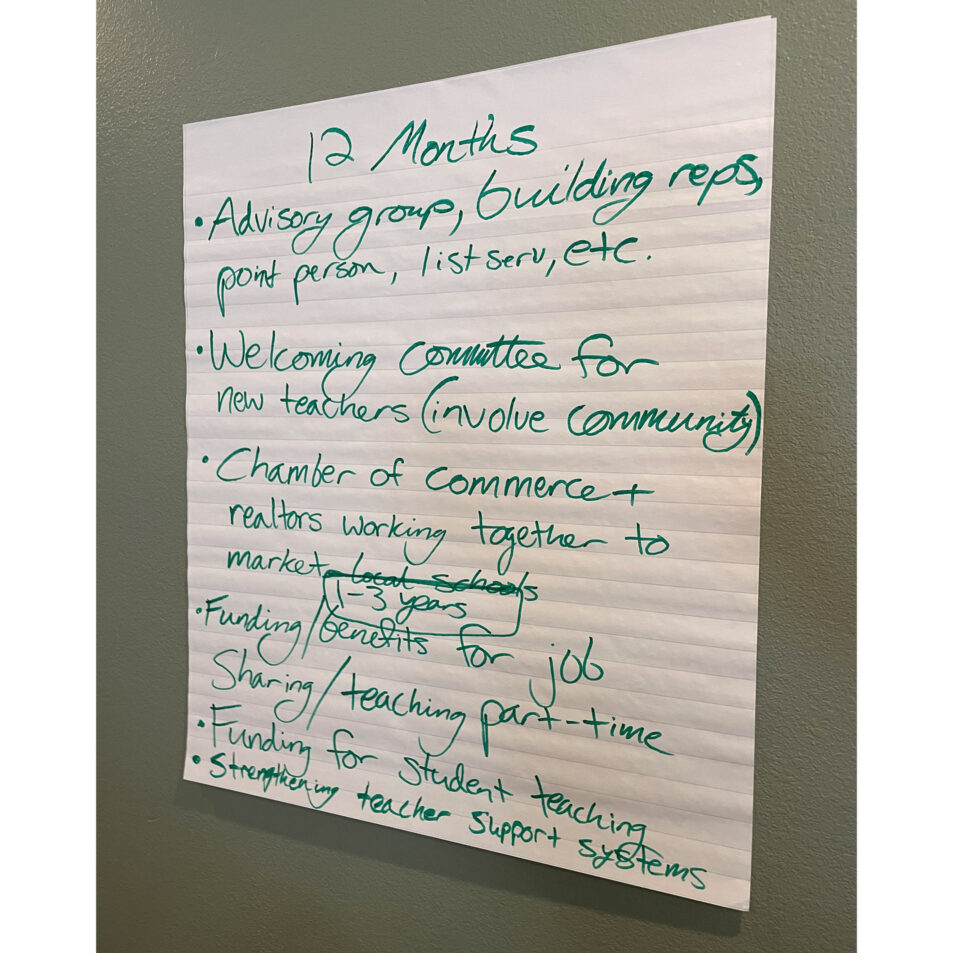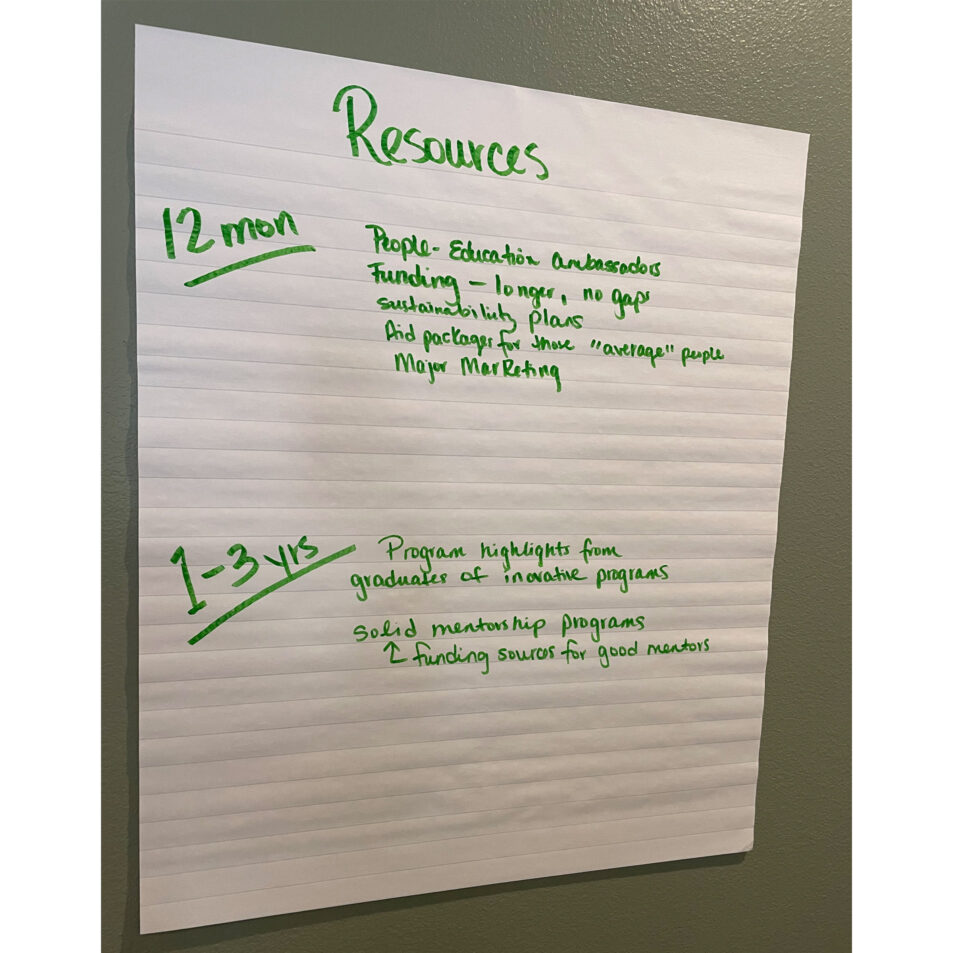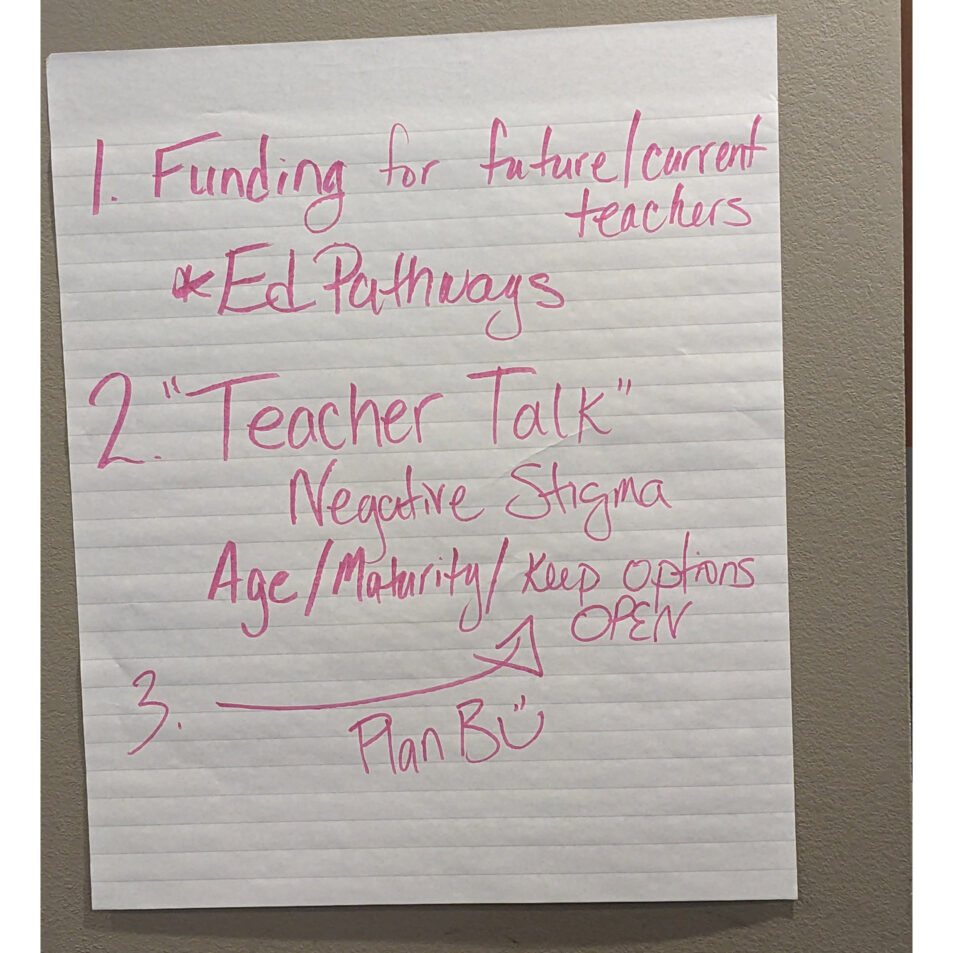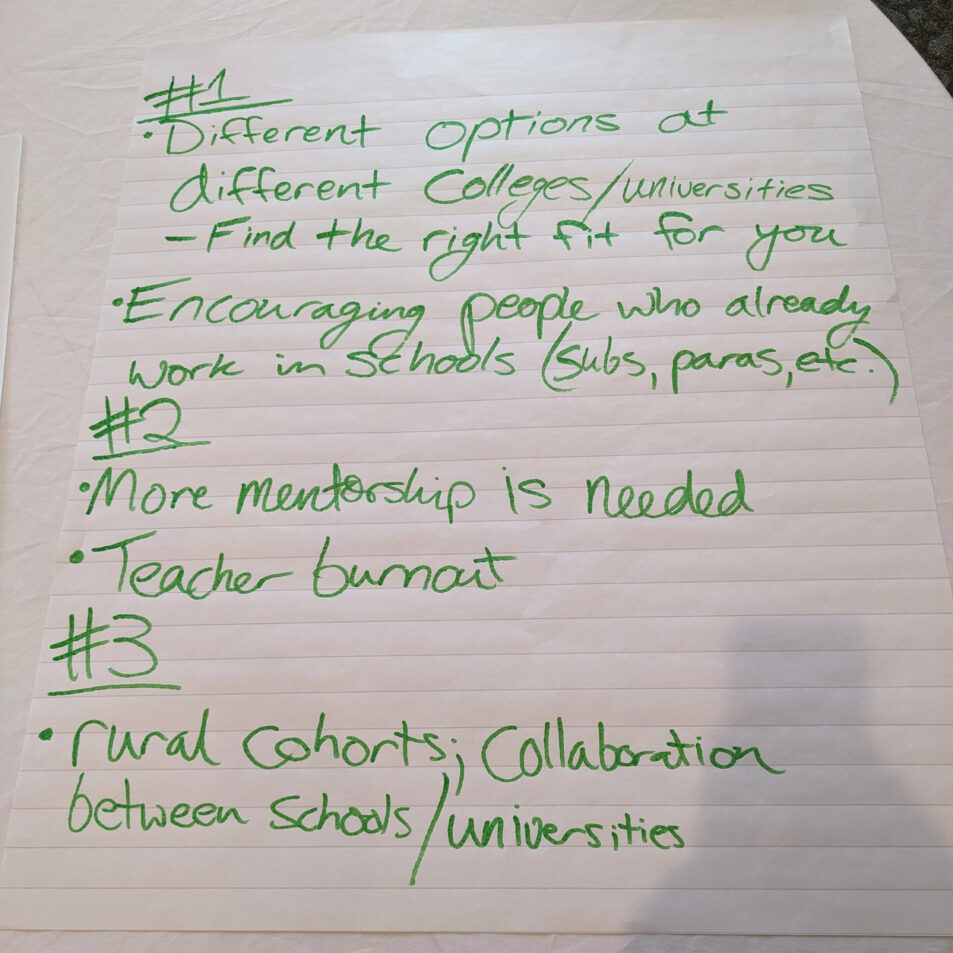We're excited to share the results of a planning project in RSC's Illinois Hub to support local teacher pathways! Rural Schools Collaborative (RSC) and the Regional Office of Education #33 (ROE#33) worked together over the last 6 months to coordinate a series of in-person meetings which brought cross-sector local stakeholders together to align and strengthen West Central Illinois teacher pathways.
We wish to thank Galesburg Community Foundation for their support of this project, which created multiple opportunities for authentic relationship-building across organizations (an essential ingredient for collaboration). This project was both aspirational and flexible, and serves as a national framework that other regions could adopt.

Project Overview:
ROE#33 supports 4 counties in Illinois (Henderson, Knox, Mercer, & Warren) which primarily serve rural and small towns schools, making them a great local partner with RSC's national scope to support rural teacher recruitment, preparation, and retention through our Rural Teacher Corps work. Alongside the Galesburg Community Foundation, we designed a planning project to bring together a group of 25+ stakeholders with unique perspectives on the challenges and opportunities for the teacher pathway in West Central Illinois. These participants included:
- 2-year and 4-year local higher education teacher preparation partners (Monmouth College, Western Illinois University, Carl Sandburg College, and Knox College)
- Current teachers and pre-service students
- Community Education Partners & Regional Philanthropy
A strong regional network in West Central Illinois embodies the value of commitment to student success and support for local educators. This project builds on the solid foundation already in place, which include:
Each of these organizations already support the teacher pathway through existing initiatives, but there was not an avenue to share about these resources with one another, align programming to reduce potential gaps or barriers, and synergize.
This is affirmed in the Illinois Educator Shortage Survey, which underscores the ongoing teacher shortage, particularly in rural communities, but also outlines key areas to act on. The survey's research inspired our framework and stakeholder identification for this planning project, encouraging initiatives that address the educator pipeline as a continuum. The report led to the highlighting of a few key spaces moving forward:
1. Create a systemic approach to the educator pipeline, starting with early recruitment of teachers in middle and high schools all the way through supporting the retention, leadership, and development of veteran teachers.
2. Create a coherent, comprehensive, and connected approach to strengthening our education pipeline, including transferability of coursework from community colleges into four-year universities for future educators.
Outcomes:
The overarching goals of this initiative are to address the educator pipeline as a continuum, foster local networking, dialogue, and resource sharing, and to also engage in asset-based storytelling to elevate share best practices. Throughout the three meetings, stakeholders identified five major themes to take action on towards strengthening local teacher pathways:
Narrative, Communications, Marketing: Intentional, asset-based promotion of the teaching field and sharing positive stories from schools.
Resource Awareness & Alignment: Documenting and sharing of existing supports to continue aligning efforts and promote collaboration vs. reinventing the wheel..
Community Engagement: We need more than just teachers committed to supporting schools and sharing a positive narrative - how do we engage education ambassadors?
- People Capacity:
Within schools: teachers, counselors, paras, etc. are all overloaded without basic supports like readily available subs/aides/mentors, increasing burnout and negative narrative.
External to schools: without people hours dedicated to strengthening teacher pathways (finding grants/resources, leading collaboration/outreach), efforts remain piece-meal instead of holistic.
Cross-Org Collaboration: Many of the higher ed partners had not previously had a space to align programs with one another, and we heard similarly that current teachers were not often sharing perspectives directly to local teacher prep leaders. In every meeting, continuing this collaboration was underscored.
100% of attendees in the post-event survey indicated interest in continued stakeholder collaboration and action (ex. working groups/advisory committee). While this 6 month planning process was helpful in building trust, and spurred organic collaboration outside of the meetings themselves, there remains a deep desire to build out specific strategies across organizations within each of these five areas listed above. For example, more conversation is needed to align transferability of coursework from community colleges into four-year universities for future educators - how do we create space for those deeper conversations?
A multi-year sustained effort, with proper resources and support, would be highly beneficial for complex questions like, “how do teacher ed course structures need to change across multiple institutions to create a seamless local teacher pathway for transfer or non-traditional students?” The desire to work together is there, but sustained support will be needed to coordinate it.
Taylor McCabe-Juhnke, RSC Executive Director and meeting co-facilitator, concluded, “Successful educator pathways create strong schools, and we know that strong schools drive rural economic health. These planning meetings are a fabulous first step in tackling silos to better serve our local students, teachers, and future-teachers - I hope other regions will take note and lean into this type of deep collaboration across institutions in service of our small schools."
Thank you again to our partners at Galesburg Community Foundation, ROE #33, and all of the education stakeholders for supporting this work! To learn more about this project, or to request the full project report, please email info@ruralschoolscollaborative.org.



